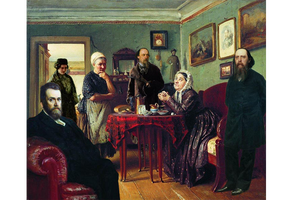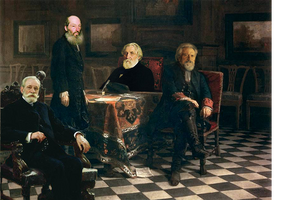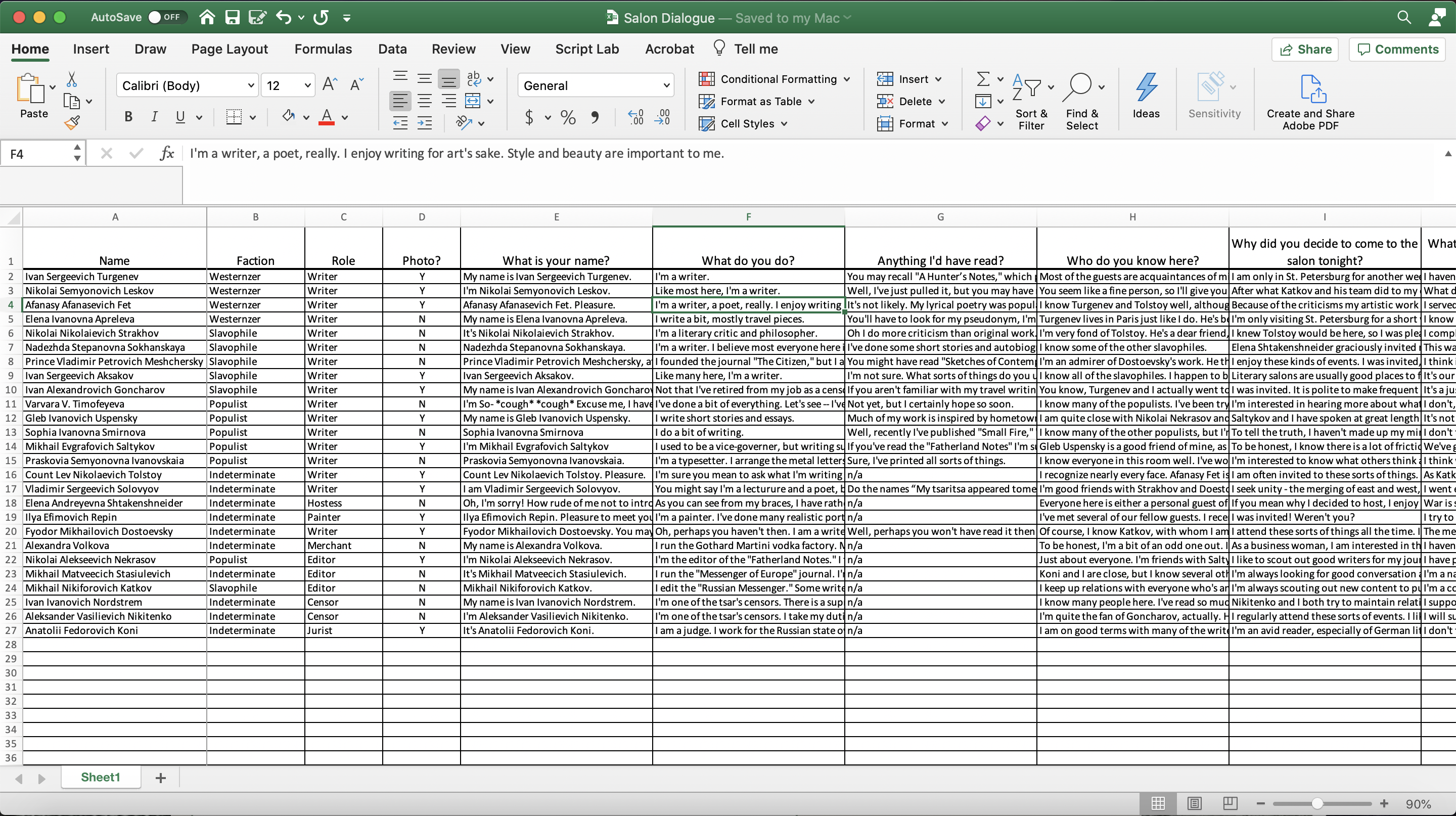Writing out the Dialogue



This week I wrote the first draft of dialogue for the game.
I started by choosing a standard set of questions that the player could ask each character. The premise of the Russia game -- both in-person and in this digital game -- is that you are a guest at a literary salon. At these sorts of events, Russian intellectuals would discuss more philosophical topics than one might find at a normal dinner party. They talk about politics (with a bit less hypersensitivity than we do in modern America, but only a bit), literature, philosophy, social justice, government policy, and just a touch of the latest social gossip.
I designed the questions by looking at the issues on all of the character role sheets and thinking about how to get characters talking about those issues. In some cases, the question is direct. For example, "What do you think about the state of education?" yields very direct results. Each character says what they think about education in terms of access and reform, if it's an issue they care about, or they tell you that they don't know much about the issue or haven't formed opinions on it yet.
Other questions have more complex goals. "What do you think of the tsar's reforms?" sometimes gets you a direct answer, but other times characters use it as an opportunity to demonstrate their loyalty to the tsar, especially if they are under suspicion of anti-tsar leanings. "Have you heard of the Going to the People Movement?" similarly allows characters to demonstrate their knowledge of the movement, hint to the player about what it is (if they haven't caught up on the game readings yet), and indicate how they feel about it. Some will believe what the government says about the movement, some will speak to its intentions, and others will lament its results or consider how they'd do things differently. None admit involvement because of the illegality of the organization, but their answers can give the players a hint.

When I made the dialogue document, I listed all of the characters in an excel spreadsheet and froze the lefthand column to make it easier to keep track of whose dialogue I was working on. The first three columns after their name were useful for me to stay organized. "Faction" kept track of each character's political associations, "Role" tracked their character type in the game, which is split between writers and everyone else. I used "Photo?" when I was making the game art to indicate whether or not a painting of that character existed for me to use.
The rest of the columns are dialogue options. I had to role play every single character as I was filling out the dialogue spreadsheet and answer every question as if I was that person. This was especially time-consuming with the Indeterminants who each have interesting and nuanced opinions on most issues that don't fit neatly into faction lines. For the writers in a faction, this process went much more quickly. On many issues, all writers in a faction will have the same opinion, so I just had to write the same thing in four slightly different ways. I tried to let each answer be a little different so as to avoid repetition, but my secondary goal was to have each character's response reveal different aspects of their factions views on that issue. For example, in the question "What are your thoughts on other religions?" all of the Slavophiles are Russian Orthodox and are generally intolerant of other religions. Here are the answers I wrote for each of the slavophile characters:
"Like everyone else, I believe in the Lord. Why should I consider any religion other than what I follow?" - Strakhov
"I don't worry about other religions. Orthodoxy is slavic heritage. That's where we all should look for guidance on social and political, as well as moral issues." - Sokhanskaya
"Orthodoxy is the religion of the slavs. It's one of the ways we are connected to our brothers in Serbia who are suffering under Turkish oppression. I don't concern myself with other religions." - Meshchersky
"I follow Orthodoxy, like any good Russian. " - Aksakov
"Orthodoxy is the true path to God. It has always been our way." - Goncharov
It doesn't matter which character you speak to. You'll always learn that Slavophiles are Russian Orthodox. If you speak to multiple characters, though, you'll learn extra details: they are religiously intolerant, they value Orthodoxy as part of their ethnic heritage, they feel connected to others who follow the same religion, and they think their religion should help guide their moral and political beliefs. It pays off for players to speak to more characters to get different perspectives, even when they are from the same faction.
Overall, I'm happy with the progress of game development so far. My next step is to transfer the dialogue into a playable .html twine file and have students play test it. I'll need to develop a short questionare for players to fill out so that I can evaluate the game's usefulness. I'll test players that have already taken the in-person Reacting to the Past class, both those who have played the Russia in-person game and those who have played other reacting games. I'll also test with students who have not taken a Reacting to the Past class at all. My goal is to have at least 15 students test the game and offer feedback.
Get Reacting to Revolutionary Russia: An Educational Video Game
Reacting to Revolutionary Russia: An Educational Video Game
This game is designed to teach students about Russian literary and revolutionary figures in 1877.
| Status | Released |
| Author | Haley Price |
| Genre | Educational |
| Tags | 2D, Historical, Point & Click, Singleplayer |
| Languages | English |
| Accessibility | One button |
More posts
- PostmortemDec 09, 2020
- Updating the UINov 27, 2020
- Sound Design and AttributionsNov 27, 2020
- Updating the MenuNov 21, 2020
- Updating the BarksNov 21, 2020
- Updating the ArtNov 14, 2020
- Update 1Nov 11, 2020
- FunctionalityNov 03, 2020
- Making Four ScenesOct 14, 2020

Leave a comment
Log in with itch.io to leave a comment.